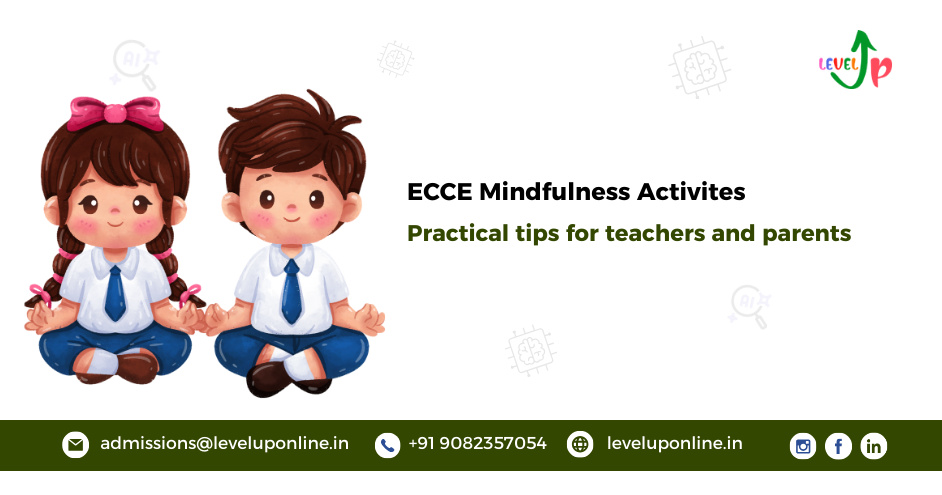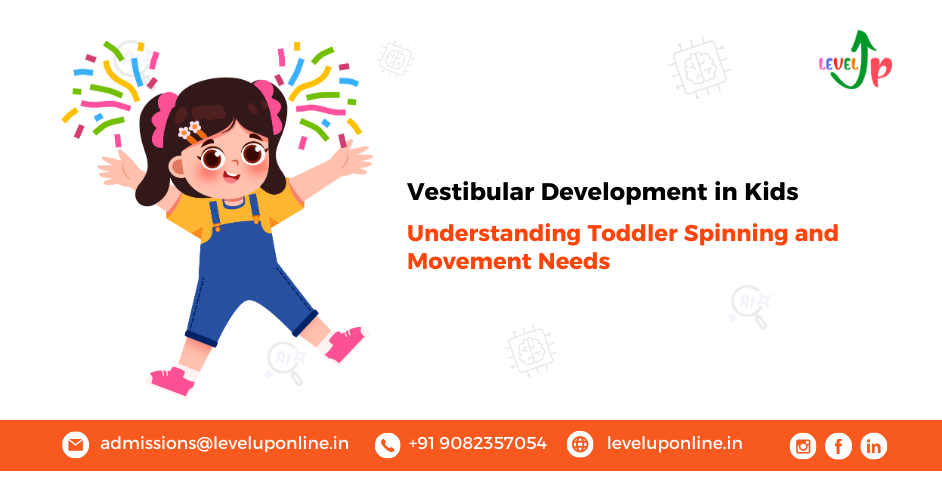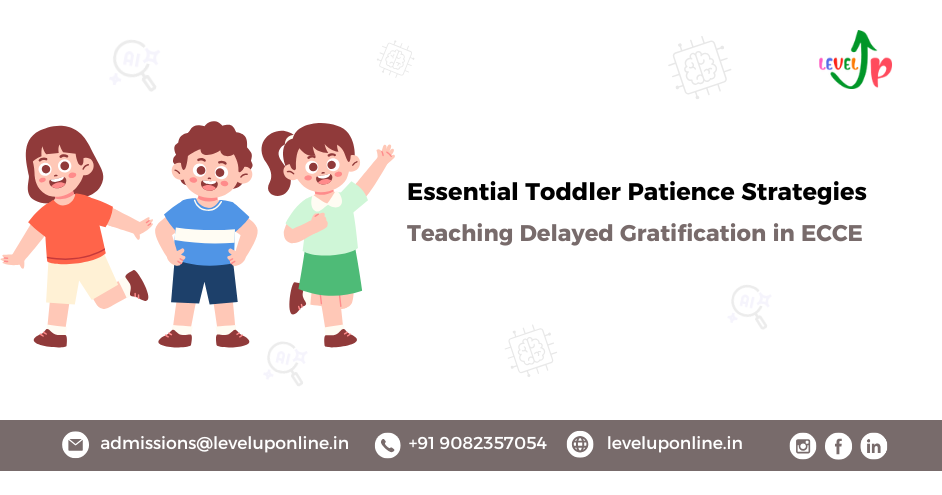Teaching Toddlers to Breathe: Mindfulness for the Very Young

Introduction Picture a busy preschool morning—blocks clattering, chatter echoing, and tiny feet racing from one activity to another. In the middle of this joyful chaos, a two-year-old becomes overwhelmed, eyes welling up, breath quickening. This is where ECCE mindfulness activities—especially teaching toddlers to breathe—can be a gentle yet powerful intervention. Mindful breathing isn’t just for…
Why Toddlers Spin: Vestibular Input and the Need for Movement

Introduction Imagine your 18-month-old suddenly discovering the joy of twirling in circles—arms wide open, giggles filling the air, and a final tumble to the floor. What looks like a playful moment is actually an important part of vestibular development in kids, shaping the way a child learns to move, balance, and interact with the world.…
Fun and Effective Exercises for Brain Development in Kids

Introduction Imagine this: your child is grinning ear to ear, marching in place, and tapping their right elbow to their left knee as if it’s the best game ever. They think it’s just playtime—but you know they’re actually boosting their memory, focus, and coordination in a big way. That’s the beauty of exercises for brain…
Teaching Toddlers How to Wait: The Value of Delayed Gratification

Introduction Picture this: you’re at the grocery store checkout with your three-year-old. They spot the bright candy display and demand one instantly. When you respond with “not now,” the frustration kicks in—tears, pleading, and possibly a tantrum. This is where teaching delayed gratification in ECCE becomes crucial, as it lays the groundwork for patience, emotional…
The Power of Purposeful Play in Financial Learning

Introduction When young children engage in pretend shopping, they’re not just having fun—they’re building vital life skills that will stay with them well into adulthood. Picture a child counting colourful play money, deciding whether to “buy” a favourite item, or swapping roles between customer and shopkeeper. What seems like simple play is, in reality, one…
Benefits of AI for ECCE Educators: How ChatGPT Can Transform Your Teaching Journey

Introduction Early Childhood Care and Education (ECCE) is one of the most rewarding yet demanding fields in the education sector. ECCE educators are responsible not only for teaching foundational literacy and numeracy but also for nurturing emotional, social, and cognitive development during the most critical stage of a child’s life. However, ECCE teachers often face…
Raising Readers in Multiscript Households (e.g., Hindi + English + Mother Tongue)

Introduction In today’s globalized world, more and more families are raising children in multilingual and multiscript environments. Whether it’s Hindi and English, or English paired with a regional or mother tongue like Tamil, Marathi, or Bengali, the challenge of multilingual reading for kids is both real and rewarding. As parents and educators in the Early…
Early Sarcasm and Figurative Language: Teaching Tone and Context

Introduction Tone and context are the heartbeats of effective communication, especially in early education. Yet, teaching tone and cotext can often feel abstract—like explaining a joke without ruining it. For children, understanding sarcasm or interpreting a metaphor goes beyond vocabulary; it’s about reading the room, sensing emotions, and decoding the unsaid. So how do educators…
Sound Walls vs. Word Walls in ECCE Classrooms: Best Literacy Tools for Early Learners

Introduction If you’re teaching in an early childhood classroom or guiding your child at home, you’re likely exploring different literacy tools for early learners. One common debate in the ECCE (Early Childhood Care and Education) world is: Should you use sound walls or word walls? Both have been around for years, but which one truly…
Helping Kids Deal with Jealousy in Group Settings

Introduction In Early Childhood Care and Education (ECCE), group learning is an essential part of a child’s developmental journey. From sharing toys to participating in group games, these early interactions shape social and emotional growth. But in these shared environments, one tricky emotion often pops up—jealousy. Whether it’s about attention, praise, or possessions, helping kids…

Close
